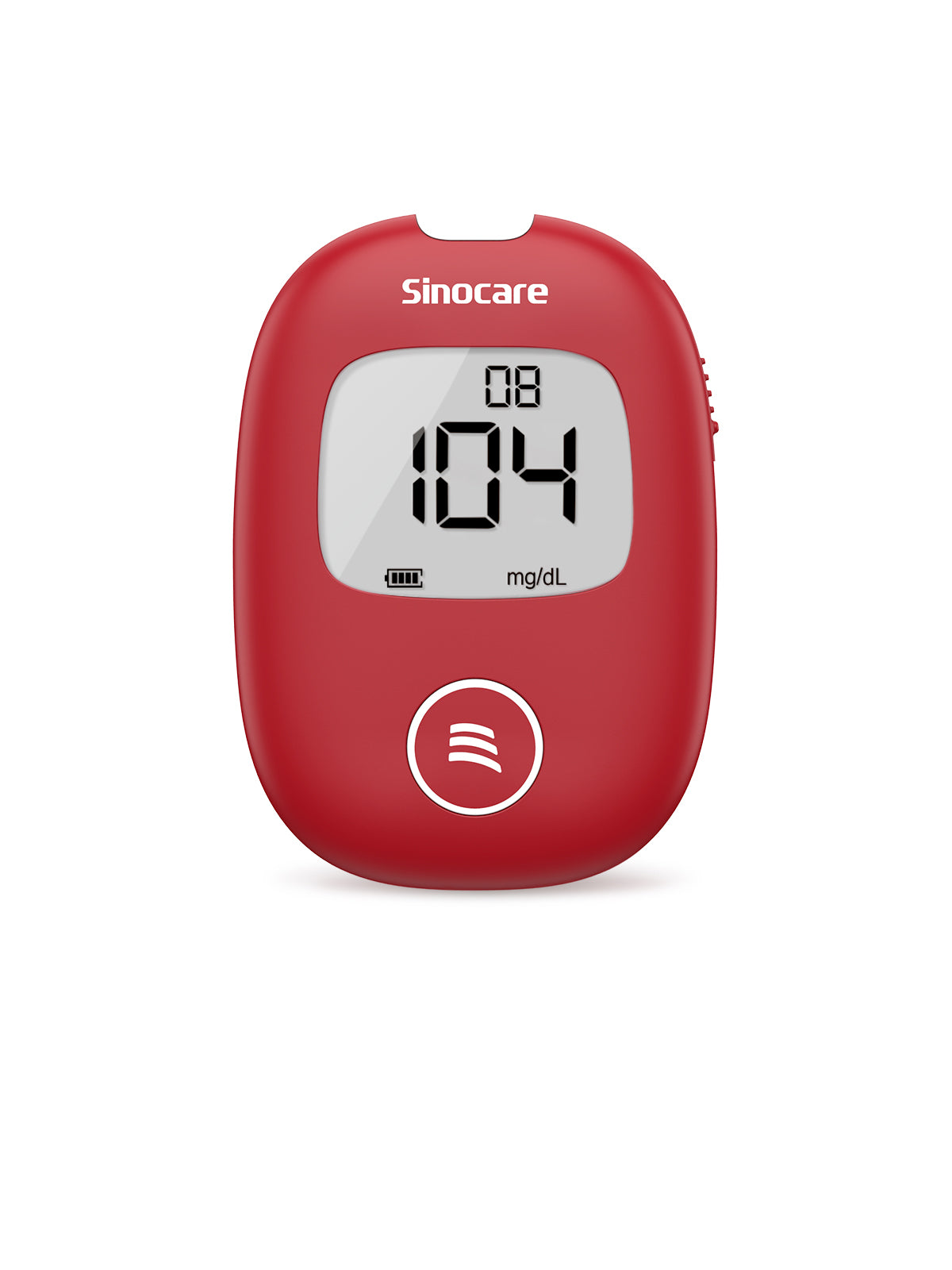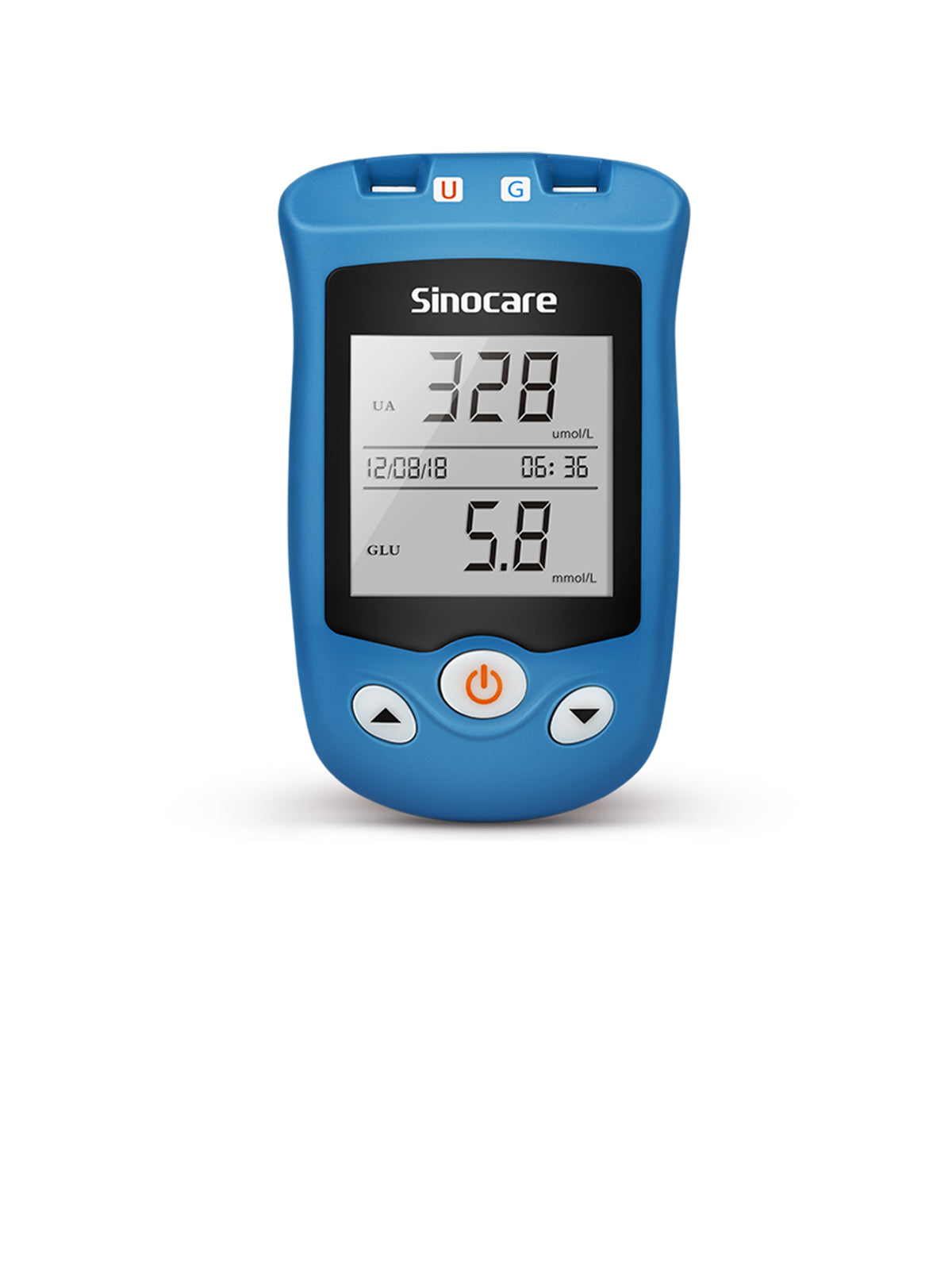Paracetamol (also known as acetaminophen) is a frequently used drug for fever and pain. It is generally a safe drug in appropriate doses. Almost all of this drug (95%) is metabolised to nontoxic molecules in the body, which are excreted in the urine. Only about 5% is converted to toxic metabolites under normal situations [1].
Recent research has shown that people consuming paracetamol are at higher risk of developing type 2 diabetes mellitus (T2DM) [2]. Consuming paracetamol can also affect blood glucose level measurements, leading to unnecessary and potentially dangerous changes in the treatment of diabetes.
Recent Research on Paracetamol and Blood Glucose Level
Regular paracetamol use is associated with a higher risk of developing T2DM. This is more likely in people under 60. This higher risk of developing T2DM affects people without heart disease and those not taking treatment for high blood pressure [2]. We should be careful when taking paracetamol for long periods.
Paracetamol can raise blood glucose levels when given as an intravenous infusion for pain relief [3]. This effect is seen in people without diabetes and can cause complications.

Paracetamol and Blood Glucose Level Measurement
Paracetamol also affects the sensors of continuous blood glucose monitoring (CGM) devices. The drug oxidises at the sensing electrode causing the device to give falsely high values of blood glucose levels. This can give a false sense of poor diabetes control and lead to increased oral drug or insulin doses.
Increasing the doses of insulin or antidiabetic drugs when blood glucose levels are not actually high puts us at risk of hypoglycemia. The food and drug administration (FDA) recommends changing insulin doses based on blood glucose meter readings and not CGM [4].
Can People with Diabetes Take Paracetamol?
Yes, the drug is safe for people who have diabetes. The normal pathway for removing paracetamol from the body is forming glucuronides and sulphates. Both these processes are as effective in people with diabetes as those without it [5].
Diabetes affects many metabolic processes in the body, including the handling of drugs. However, the metabolism and removal of paracetamol are not affected. People with diabetes can safely use paracetamol as prescribed by their doctor. Paracetamol is one of the drugs recommended for treating the pain of diabetic peripheral neuropathy [6].
Drug interactions are a concern when we consume multiple drugs. Paracetamol does not have any dangerous interactions with insulin or other antidiabetic drugs. Some of these drugs may reduce the absorption of paracetamol from the intestines. This might reduce the pain relief provided but is not dangerous.
Side Effects of Taking too Much Paracetamol
Paracetamol use is common, but we must be careful about consuming only the recommended doses. Up to 4 grams daily is generally safe, though a person's body weight also matters. In general, doses less than 75 milligrams per kilogram of body weight are not likely to cause toxicity [7].
Paracetamol is one of the most common poisonings in children and adults. An ingestion of 7 grams is considered lethal for adults.
If we take paracetamol in a safe dose, it is metabolised to nontoxic glucuronides and sulphates. However, consuming large amounts leads to producing toxic nucleophilic macromolecules and mercapturic acid conjugate that cause liver cell death [1].
Liver injury signs appear 24 to 36 hours after ingesting a paracetamol overdose. The most serious effect is liver damage. Jaundice, abdominal pain, nausea, vomiting, unconsciousness (coma), and death can happen [7].
Drugs to be Careful with Diabetes
People with diabetes should be cautious when taking treatment for other conditions. Diabetes affects the drugs we take in several ways [8]:
- Reduced absorption
- Altered distribution in the body
- Changes in enzymatic handling
- Removal of drugs from the body because of kidney damage
Apart from these effects, the drugs we consume for controlling blood sugar also interact with other drugs we take. When we consult a doctor for any disorder, it is important to let them know about our diabetes and the antidiabetic drugs we are taking.
People with diabetes should specifically avoid the following:
- Drugs that raise the blood sugar level: alcohol, some antidepressants, caffeine, birth control pills, some heart disease medicines, thyroid hormones, steroids, and others;
- Drugs that reduce the blood sugar level: some antibiotics, aspirin, quinine, some medicines for heart disease and hypertension, and others;

Frequently Asked Questions (FAQs)
Can People with Diabetes Take Ibuprofen?
Ibuprofen has also been investigated for its effect on diabetes. Regular use of ibuprofen is not associated with a higher incidence of T2DM [2]. This drug appears safe for use by people with diabetes.
However, if diabetes has already caused nephropathy (kidney damage), it is safer to avoid ibuprofen.
What Painkillers Are Safe for People with Diabetes?
Paracetamol is a safe drug and can be used by people with diabetes. Ibuprofen is also a safe drug and has the benefit of reducing inflammation.
Other drugs recommended for pain control in people with diabetes and neuropathy are pregabalin, gabapentin, amitriptyline, and duloxetine. For severe pain not relieved by these drugs, opiates are an effective option. However, we must be aware that opiates carry a high risk of addiction.
Can People with Type 2 Diabetes Take Imodium (Loperamide)?
Loperamide, the active drug in various Imodium preparations, is used to treat diarrhoea. Loperamide is known to cause heart-related complications. Since people with diabetes often have heart disease, we should be careful about using such drugs.
Diarrhoea can result from indigestion, infections, food poisoning, and other disorders. It is safest to consult your doctor. Many types of diarrhoea resolve themselves in a few hours or days, and specific drug treatment is unnecessary. Your doctor will advise you about avoiding dehydration, maintaining nutrition, and other treatments.
Can People with Diabetes Take Phenergan (Promethazine)?
Promethazine is a drug with many uses. It is used as a sedative; to treat nausea, vomiting, and allergies; before surgery and anaesthesia; and as a cold and cough medicine [9].
It is not safe for people with diabetes because it interferes with the action of drugs used to treat diabetes. Combining promethazine with dextromethorphan (a cough suppressant) results in increased blood glucose levels [10].
Final Thoughts
No drug is absolutely safe. This is especially true for people with diabetes who have altered absorption, metabolism, and removal of drugs. Paracetamol has been linked to an increased risk of developing diabetes on prolonged use. Older adults with diabetes are also at an increased risk of stroke on long-term consumption of paracetamol [11].
Despite these potential dangers, paracetamol is still a good choice for pain management in people with and without diabetes. Its safety profile is favourable, but recent research indicates a need to be cautious when consuming this drug regularly over a prolonged period.
References
1. Katzung GB, Vanderah TW. Basic and Clinical Pharmacology. McGraw Hill, 2021. { https://accessmedicine.mhmedical.com/book.aspx?bookID=2988 }.
2. Zhou, C., Wu, Q., Ye, Z., et al. Diabetes & metabolism, 48(6), 101388. Regular use of ibuprofen or paracetamol and incident type 2 diabetes: A prospective cohort study in the UK Biobank. {https://doi.org/10.1016/j.diabet.2022.101388}.
3. Pereira, R., Gonçalves, F., Costa J., et al. Intraoperative Glycaemia Following Paracetamol with and without Glucose: A Randomised-Controlled Trial. International Journal of Clinical Medicine. 2013;4:409-416. { 10.4236/ijcm.2013.49074 }
4. Maahs, D., DeSalvo, D., Pyle, L., et al. Effect of Acetaminophen on CGM Glucose in an Outpatient Setting. Diabetes Care 2015;38(10):e158–e159. { https://diabetesjournals.org/care/article/38/10/e158/37690/Effect-of-Acetaminophen-on-CGM-Glucose-in-an }
5. Stachowiak, A., Szałek, E., Karbownik, A., et al. The Influence of Diabetes Mellitus on Glucuronidation and Sulphation of Paracetamol in Patients with Febrile Neutropenia. European journal of drug metabolism and pharmacokinetics { https://doi.org/10.1007/s13318-018-0508-4 }
6. Holt, T., Kumar, S. ABC of Diabetes. Wiley, 2015. { https://www.wiley.com/en-us/ABC+of+Diabetes,+7th+Edition-p-9781118850534 }
7. BMJ Best Practice. Paracetamol overdose in adults. { https://bestpractice.bmj.com/topics/en-gb/3000110 }.
8. Dostalek, M., Akhlaghi, F., & Puzanovova, M. Effect of diabetes mellitus on pharmacokinetic and pharmacodynamic properties of drugs. Clinical pharmacokinetics, 51(8), 481–499. https://doi.org/10.2165/11631900-000000000-00000
9. Southard, B., Khalili, Y. Promethazine. StatPearls Publishing, 2021 { https://www.ncbi.nlm.nih.gov/books/NBK544361/ }
10. Tien M, Gan TJ, Dhakal I, et al. The effect of anti-emetic doses of dexamethasone on postoperative blood glucose levels in non-diabetic and diabetic patients: a prospective randomised controlled study. Anaesthesia. 2016;71:1037-43. { 10.1111/anae.13544. PMID: 27523051 }
11. Girard, P., Sourdet, S., Cantet C., et al. Acetaminophen Safety: Risk of Mortality and Cardiovascular Events in Nursing Home Residents, a Prospective Study. Journal of the American Geriatrics Society. 2019;67:1240-1247 {https://doi.org/10.1111/jgs.15861}










Leave a comment
All comments are moderated before being published.
This site is protected by hCaptcha and the hCaptcha Privacy Policy and Terms of Service apply.